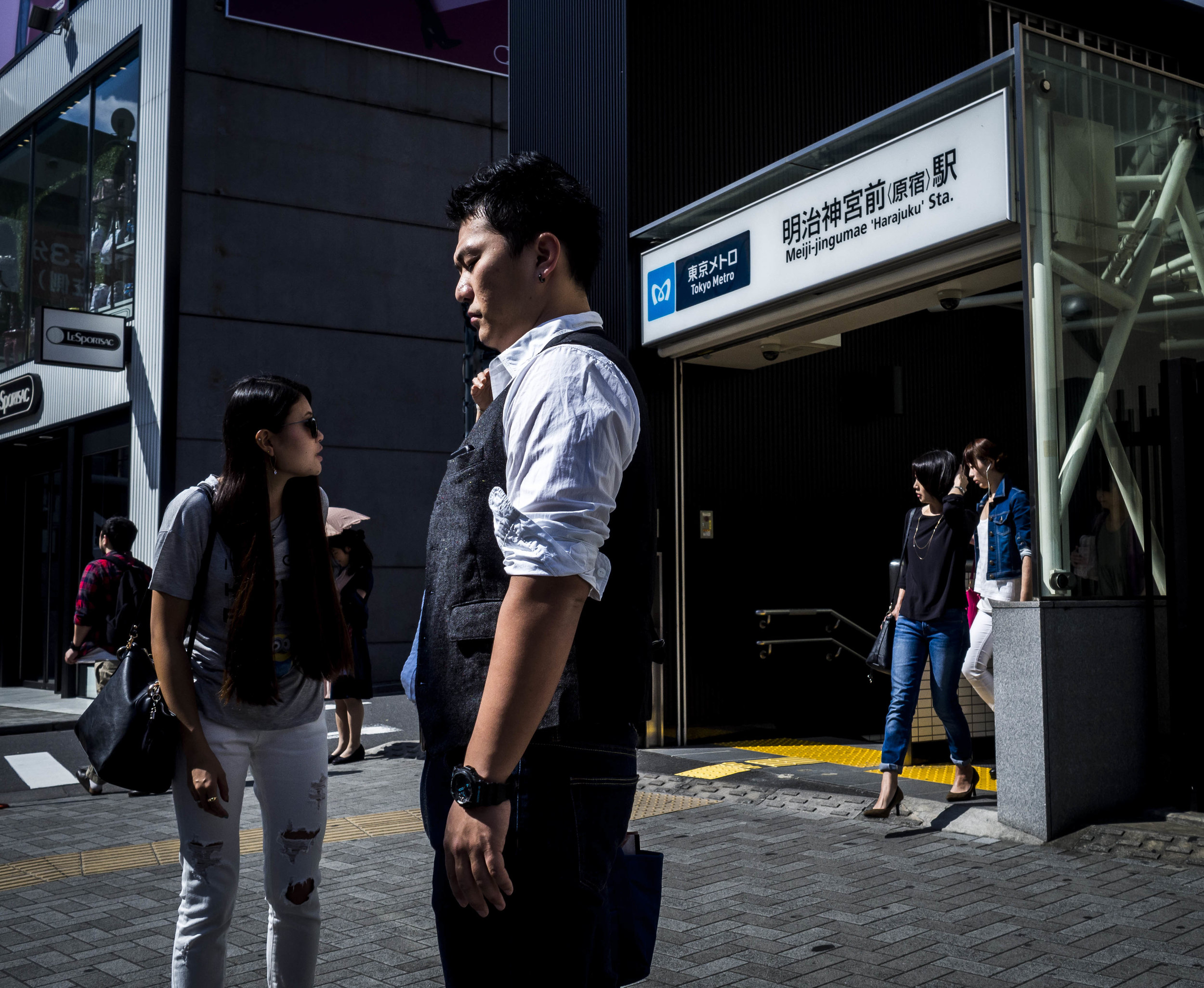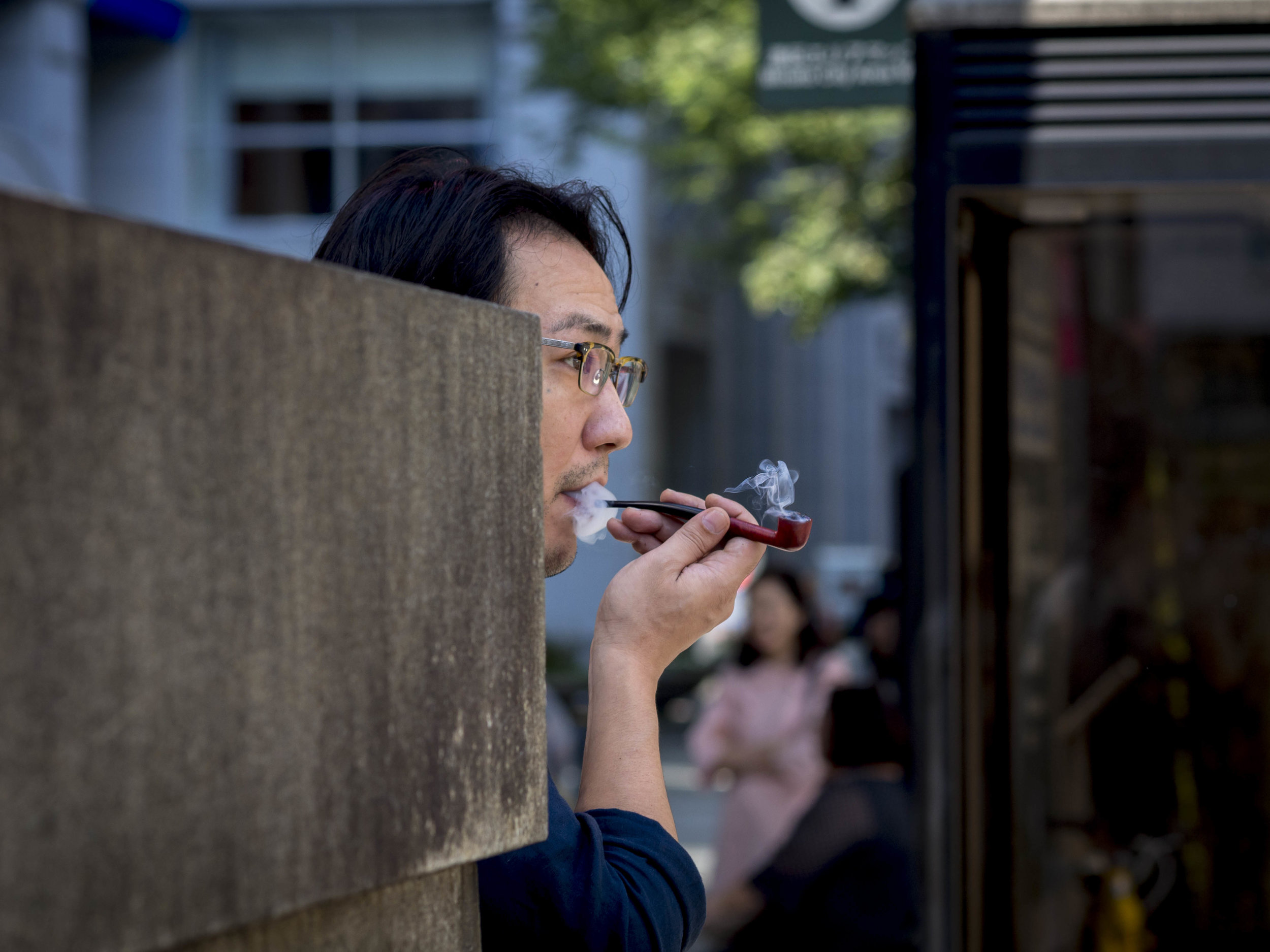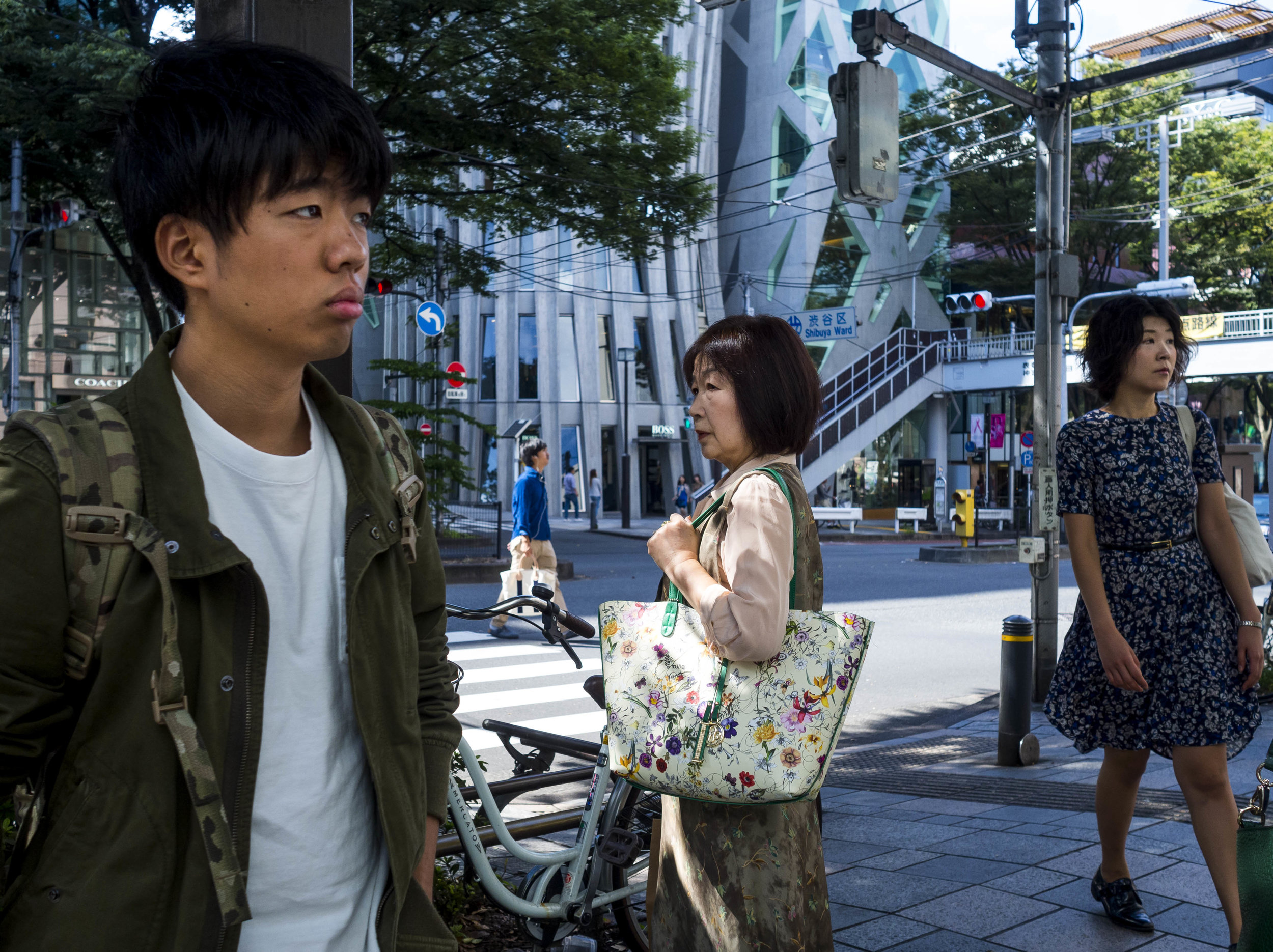I have a confession.
When shooting street photos, I rely on luck as much as control.
Most street photographers will identify with this, the thrill of everything coming together in layers that cannot be planned, but can be planned for. cameras do not go out and take images themselves, but there is only so much the photographer can do. Like sport photography, you can control the framing, the shutter fire and other creative steps, but not what will happen.
I once wrote a post on the difference between "making and taking" a photo. The two styles both require preparation and practice, but they both also rely on luck to some extent. Sometimes my efforts are rewarded more than others. I used to put this down to just good and bad days or to the results experiments with different gear configurations or technique. I do not know.
These things must have some bearing, but luck comes when I just let it flow. I honestly cannot say that I have known the results of many of my stronger shots until after a shoot when the are uploaded. I can also say with confidence though, that my compositions have a level of conscious control, being aware of a "middle distance"* view of the elements coming together, forming a balance that triggers an intuitive need to push the shutter button.
Some compositions have hidden additives that make up the extra layer depth that sets them apart, others are very much the sum of their parts, no more, no less. I am getting better over time, so practice is definitely a contributing factor.
Very much deliberate, this is the third in a fast set, that failed to net the decisive composition before one lady dropped her arm. The composition that caught my eye had all three women shading their eyes, but two were obscured. In response to the women converging and loosing the original composition, I rebalanced automatically with the two men on the left. It still kind of works on a basic level, but lacks the clarity of composition needed.
When luck adds the extra element, you must take it humbly. No, you did not fully understand what you had, but you made it happen by controlling everything up to that point. Maybe on some level intuition does add awareness, like the moment you catch a ball. Do you really think about every micro movement that makes up the catch or, just let instinct take over?
This image was captured for pleasing shape the two adults gave to the framing of the girls face, on a morning of better than normal good luck. The T-shirt, adding the extra two sets of eyes looking at the girl, making everyone look as if they are waiting for some profound decision, could not have been planned.
I believe if a photographer is well organised, always looking for solid compositions and shoots with freedom and instinct, then they will often reap the rewards of any good luck coming their way. I have noticed that if I am a bit rusty, or too excited about my location, there is little the cosmos is willing to supply. It is only when I can relax and simply see in an environment that is rich with subject matter, that the rest falls into place. Self consciousness tends to drop away also when you are in "the zone".
Much as the image above, the line of active people caught my eye, offering possibilities. The timing of the shutter fire was deliberate with the look a dash of luck.
Organisation is partly getting your gear sorted and partly getting your head sorted. If you have a too many things going on at different distances and with different compositional tools (cameras or lenses), you will see lots of images forming, but never get them in time. There is little more unsettling than thinking of images forming in front of and having the extricate a lens from the bottom of a bag, or turn on a camera and change settings. Cap off, hood on, camera on standby and all settings sorted first. Composition and shutter release are all you will get time to do. Think ahead and learn to anticipate what is changing around you.
The best I can do is a camera on a strap (preferably with a flip screen for waist high viewing), a manually pre focussed, 17mm lens and settings that are capable of giving good results with one hand operation and without hesitation. A second body is in my left hand set to centre point AF with a 45 or 75mm attached. I would be lying if I said these can be controlled equally and that my thoughts/vision/attention is truly double barrelled, but as the environment changes I can adapt without loosing flow, using one of my two preferred techniques (close and layered or tight detail). I will sometimes deliberately switch to the other camera/lens combination to look differently at things, but usually I let the world in front of me determine what feels right.
The above images were taken within minutes of each other using the "two cameras" technique. The first is with a 17mm at waist height, using the flip screen to compose, the second is with the left hand body up to the eye using a 75mm and the last, back to the 17mm again. This particular afternoon I had a high success rate, getting over 20 images that I genuinely like. In the tighter side streets, the 17mm ruled, but out on the wider boulevard, honours were even.
You must decide on your own needs, but remember the most important thing. Be able to take your image instantly. If you cannot, you will be limited to slow moving or static subjects or posed images.
* A martial arts term for being calm and seeing all, but nothing specifically, by looking "in the middle distance" between you and what is around you.





